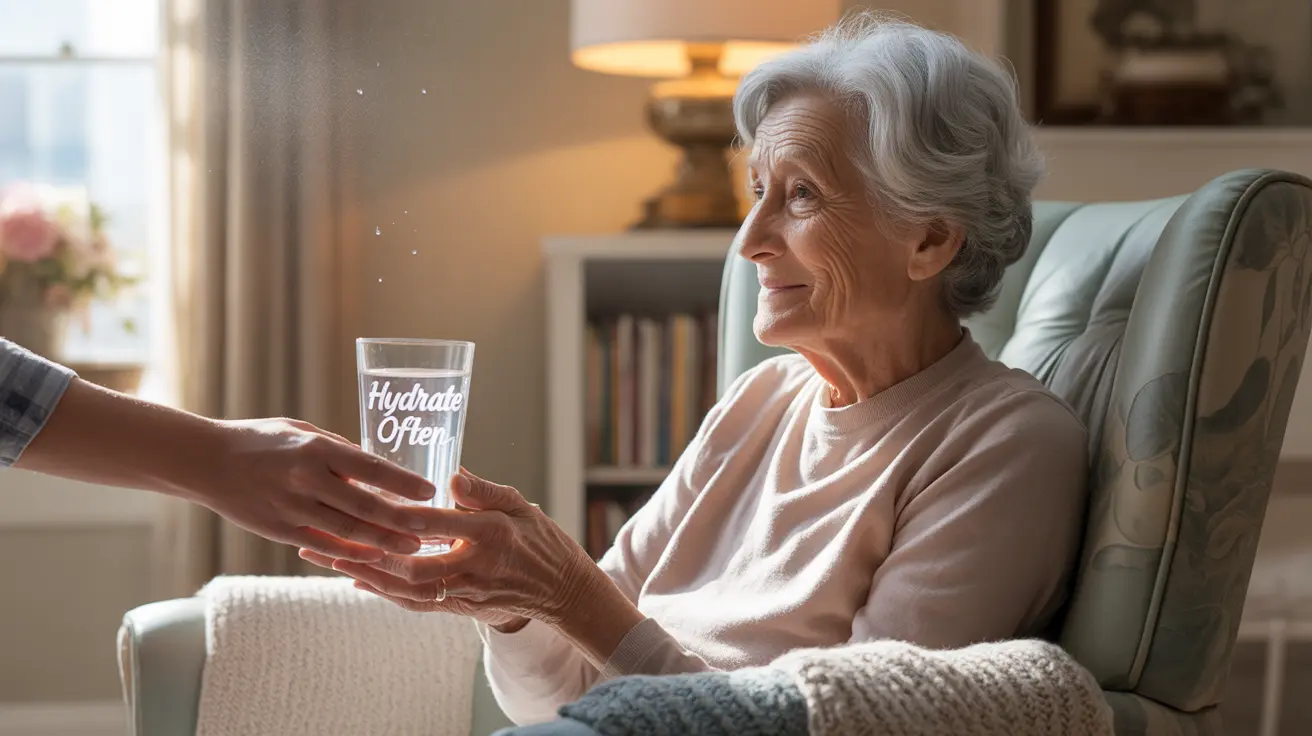Dehydration in elderly individuals is a serious health concern that requires careful attention from both caregivers and healthcare providers. As people age, their bodies become more susceptible to fluid imbalances, making proper hydration essential for maintaining good health and preventing complications.
This comprehensive guide explores the crucial aspects of dehydration in older adults, including recognition of symptoms, understanding risk factors, and implementing effective prevention strategies.
Why Elderly People Are More Vulnerable to Dehydration
Several age-related changes make older adults particularly susceptible to dehydration:
- Decreased thirst sensation
- Reduced kidney function
- Changes in body composition
- Medication side effects
- Mobility limitations affecting access to fluids
- Cognitive decline impacting fluid intake awareness
Understanding these risk factors is crucial for implementing effective prevention strategies and maintaining proper hydration levels in seniors.
Key Signs and Symptoms of Dehydration in Older Adults
Physical Symptoms
Common physical indicators of dehydration include:
- Dry, sticky mouth
- Sunken eyes
- Reduced skin elasticity
- Dark-colored urine
- Decreased urination frequency
- Low blood pressure
- Rapid heart rate
Behavioral and Cognitive Signs
Caregivers should watch for these behavioral changes:
- Increased confusion
- Dizziness
- Fatigue
- Irritability
- Difficulty walking
- Changes in mental alertness
Prevention Strategies for Elderly Dehydration
Implementing proper hydration strategies is essential for preventing dehydration in seniors:
Daily Fluid Intake Guidelines
While individual needs vary, general recommendations include:
- Consuming 6-8 glasses of water daily
- Including hydrating foods in the diet
- Setting regular drink schedules
- Keeping water easily accessible
Creating Supportive Environments
Environmental modifications can help encourage proper hydration:
- Placing water within easy reach
- Using easy-to-handle cups or containers
- Setting hydration reminders
- Offering preferred beverages (within health guidelines)
Medical Assessment and Treatment
When dehydration is suspected, proper medical evaluation is crucial for determining the appropriate course of treatment.
Diagnostic Approaches
Healthcare providers may use several methods to assess dehydration:
- Physical examination
- Blood tests
- Urinalysis
- Vital sign monitoring
- Skin turgor assessment
Treatment Options
Treatment varies based on severity and may include:
- Oral rehydration
- IV fluid administration
- Electrolyte replacement
- Underlying cause treatment
- Monitoring and follow-up care
Frequently Asked Questions
- What are the common symptoms of dehydration in elderly people?
Common symptoms include dry mouth, dark urine, decreased urination, confusion, dizziness, fatigue, and reduced skin elasticity. Physical signs may be accompanied by behavioral changes such as increased irritability and difficulty concentrating.
- Why are older adults more prone to dehydration compared to younger individuals?
Elderly individuals are more susceptible to dehydration due to reduced thirst sensation, declining kidney function, changes in body composition, medication effects, and potential mobility or cognitive issues that may limit fluid intake.
- How can dehydration in seniors be prevented effectively?
Prevention involves maintaining regular fluid intake, setting drinking schedules, ensuring easy access to beverages, incorporating hydrating foods, and creating supportive environments that encourage proper hydration throughout the day.
- What should caregivers do if they suspect an elderly person is dehydrated?
Caregivers should immediately encourage fluid intake if the person is alert and able to drink safely. They should also monitor symptoms closely and seek medical attention if symptoms are severe or if the person shows signs of confusion, extreme fatigue, or inability to maintain fluid intake.
- How is dehydration in elderly patients diagnosed and treated?
Diagnosis typically involves physical examination, blood tests, and urinalysis. Treatment may range from oral rehydration to IV fluid administration, depending on severity. Healthcare providers will also address any underlying conditions contributing to dehydration.




